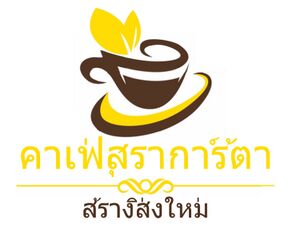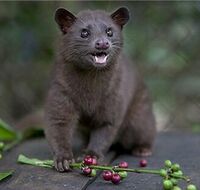Cafe Surakarta: Difference between revisions
Hierophant (talk | contribs) No edit summary |
Hierophant (talk | contribs) No edit summary |
||
| Line 18: | Line 18: | ||
| location = | | location = | ||
| locations = | | locations = | ||
| area_served = '''Malaio''' <br> [[Pulau Keramat]],[[Onekawa-Nukanoa]], [[Zanzali]] <br> '''Oxidentale''' <br> [[Mutul]] <br> '''Belisaria''' <br> [[Latium]], [[Gelonia]], [[North Ottonia]] <br> '''Norumbia''' <br> [[Belfras]], [[Walzenia]] <br> '''Scipia''' <br> [[Gran Aligonia]] <br> '''Ochran''' <br> [[Uluujol]], [[Jhengtsang]], [[Tsurushima]] | | area_served = '''Malaio''' <br> [[Pulau Keramat]],[[Onekawa-Nukanoa]], [[Zanzali]] <br> '''Oxidentale''' <br> [[Mutul]] <br> '''Belisaria''' <br> [[Latium]], [[Gelonia]], [[North Ottonia]] <br> '''Norumbia''' <br> [[Belfras]], [[Walzenia]] <br> '''Scipia''' <br> [[Gran Aligonia]], [[Alanahr]] <br> '''Ochran''' <br> [[Uluujol]], [[Jhengtsang]], [[Tsurushima]] | ||
| key_people = | | key_people = | ||
| industry = {{wp|Coffee|Coffees}} and {{wp|Tea|Teas}} | | industry = {{wp|Coffee|Coffees}} and {{wp|Tea|Teas}} | ||
Revision as of 21:57, 21 June 2021
 Create Something New | |
| State-owned enterprise | |
| Industry | Coffees and Teas |
| Predecessor | Pandanggen Tea House (หมีแพนด้า โรงน้ำชา) |
| Founded | 1969 |
| Founder | Sukhon Kamon Sunan |
| Headquarters | , |
Area served | Malaio Pulau Keramat,Onekawa-Nukanoa, Zanzali Oxidentale Mutul Belisaria Latium, Gelonia, North Ottonia Norumbia Belfras, Walzenia Scipia Gran Aligonia, Alanahr Ochran Uluujol, Jhengtsang, Tsurushima |
| Owner | Ubon Mali Wattana |
| Parent | Wattana-Insert-Name Food and Beverage |
Cafe Surakarta (Raji Script: คาเฟ่สุราการ์ต้า) is a Pulau Keramat coffee company and coffeehouse chain. Cafe Surakarta was founded in Puahng Jerehannak, Birhanu in 1969, and now holds numerous locations primarily in Malaio and Ochran. As of early 2019, Cafe Surakarta operates around 1,200 locations worldwide, with locations in Oxidentale, Belisaria, and Norumbia being much more recent additions.
Cafe Surakarta is a brand of Wattana-{Insert-Name} Food and Beverage, an Malaio-based State-Governed company that builds, operates, and franchises a select portfolio of specialty food service brands. Wattana-{insert-Name} Food And Beverage is currently headquartered in both Iskali and Pulau Keramat, and both governments currently hold authority in an executive board and other operations within the company.
Cafe Surakarta locations serve hot and cold drinks, whole-bean coffee, oliang, kopi cham, ipoh, cafe da, full- and loose-leaf teas, and snacks including various traditional pasteries; some offerings are seasonal, and many locations have specific items tied to the individual store. Each location is renown for having their architectural designs traditionally made by winners of a special contest hosted by the company, evoking an atmosphere fusing local independent culture and larger Raji cultural ties. In addition, each location is known for having a 'Reading Room', where poetry readings, open mics, and local performances are encouraged and made a free venue towards, with each Cafe being granted a collection of literature under operations of the Rumah Emas, and through local donations & purchases.
Cafe Surakarta, in 2009, under a partnership with fellow Wattana-{Insert-Name} Food and Beverage company Hummibliss, revealed the first hybrid location of the two chains in Kopiona Poi. Since then, there have been several hybrid locations opening within the parent nations of Iskali and Pulau Keramat.
The current slogan, Create Something New (Raji script: สร้างสิ่งใหม่), was chosen at the beginning of 2019 to celebrate the 50 year anniversary of the company, replacing the now defunct slogan of From The Heart. (Raji script: ทำด้วยหัวใจ)
The chain's mascot, Bambang(Raji:นักรบ), is a Rajosi Civet, a species essential for the preparation of Kopi luwak. A Pulaui children's cartoon show, called Bambang's Adventures,(Raji:การผจญภัยของนักรบ) aired in 2010, and ran for 5 years, with special episodes being ran to promote special events and new products for the company.
History
In 1969, Sukhon Kamon Sunan purchased the Pandanggen Tea House at a government auction, due to the previous family owners having sold the business as they moved to Tsurushima. She, inspired by several artistic movements that had been prominent during the period, was incited to develop the heavily traditional tea-house into a space for youth art and voice. The first location, based in Puahng Jerehannak, was known for being heavily involved in spoken word culture and musical innovation, with the Birhanu Institute of Arts (Raji Script:ฮะ สถาบันศิลปะ) being located nearby. The entirety of Sukhon's family began to work in the new Cafe, titled Cafe Surakarta after one of the aforementioned art movements, and immediately began to attract massive traffic and intrigue in the new location. Within a year, the cafe had performed expanded and grown to include five more locations within the city, and had registered with the Rumah Emas as an officiated 'Culture Centre', with funding provided to literature and arts-involved projects within the spaces.
By 1975, Cafe Surakarta had expanded to host over 100 locations throughout Pulau Keramat, and had begun packaging coffee to sell to restaurants, hotels, and supermarkets. The company applied for membership into the Vespanian Exchange Institute, and was admitted within the economic year, with the first Pertumbuhan Analysis delivered finding the company to have exceptionally high grades and receptions. With this new surge of popularity, Sukhon Kamon Sunan began to introduce the Sunan Competition (Raji Script: การแข่งขันสุนันท์), which featured a submission and interview based process in order to begin allowing independent architects and artists to have major influences and allocations to the designs and atmosphere of future locations, with a few necessary requirements involving the reading room, a stage for performances, and, as quoted by Sukhon Kamon Sunan in the first public announcement of the 1976 competition, "The blossoming soul and spirit of independent creativity." (Translated into Latin) The Sunan Competition became a standard to the establishment process of every new location, with local literature and aspiring authors invited to submit their pieces to be included in each reading room.
In 1980, the company began expanding to the international market, securing locations across the rest of continental Malaio and southern Ochran, continuing to receive partial funding and facilitation by the Rumah Emas as it's expansion led to certification for state cooperative involvement and supervision. The Sunan Competition allowed for each new location to retain some remnant of Raji influence and identity, yet grew in reputation for being a receptacle of intrigue by various minds of the architectural community as various cultures and identities were infused into the locations. Cafe Surakarta is often traced as one of the reasons for the contemporary spread and popularity of the traditional Pulaui Gamelan orchestra, Raji-styled spoken word, and as a common meeting place for left-identifying artists and authors.
In 1994, the CEO's of both Cafe Surakarta and the Hummibliss declared the foundation of the Wattan-{Insert-Name} Food and Beverage company, acting as a parent company to both food companies. The reasoning, as discussed in a public press conference held by the two in Kopiona Poi, were found in a mutual desire to spread and ensure the success of Malaio culture and prosperity throughout the international market and larger community, believing that establishing a parent company that focused on the promotion and procurement of Malaio culture by means of restaurants, cafes, grocers, and other related industries would assist in protecting cultural integrity and strength. When questioned regarding other motivations and reasonings, primarily due to the marriage of Ubon Mali Wattana and placeholder name being publicly announced for three months following the conference, Wattana responded with a curt response of, "What are the odds? We're in love, and that's it.". (Translated from Raji) The conference, and specifically the statement, led to a surge of popularity with the LGBT communities of countries that had locations from either company, and sparked controversy with various conservative organizations. The wedding itself was used as an inspiration for advertisements in the following year, seeing the mascots of both organizations 'married' as to promote the new partnership, with special novelty items at both locations being available for the following months.
In 2004, the first location outside of both Ochran and Malaio was created in Mutul. The move stirred much news coverage in Pulau Keramat, many questioning the success of the Raji-styled service and food culture in a region with little familiarity and integration. However, locations soon began to pop up, throughout all of Ajax.
Cafe Surakarta, in 2009, under a partnership with fellow Wattana-{Insert-Name} Food and Beverage company Hummibliss, revealed the first hybrid location of the two chains in Kopiona Poi. Since then, there have been several hybrid locations opening within the parent nations of Iskali and Pulau Keramat.
Products
Beverages
As of April 2012, the company offers 12 blended roast, ground, and whole bean coffees, and 6 espressos in ground and whole bean. In select locations within Pulau Keramat, Kopi luwak is offered, although it is often kept in limited stock, and reserved for special occasions and as rewards for winners of local poetry competitions or music events. With the exception of the Kopi luwak, every coffee is also packaged and available for sale online, and many are traditionally found in Malaio grocers. Most brews can be served either hot or iced, with only seasonal and location-based brews traditionally being the exception.
In addition, at current day the company offers over 100 different tea blends at various locations, alongside various tea beverages such as Raji Tea, Teh Tarik, Teh Talua, amongst various others. While none of these teas are available for purchase online, tea bags are available for purchase at every location. Each location has wide seasonal and local tea selections using local produce, and each tea is available upon request to be used as a substitute in one of the traditional tea beverages.
In 2007, Cafe Surakarta announced that in select stores, the sale of alcohol would be made available, traditionally found with spiked coffee beverages or tea-based cocktails, with an online competition to create a product to be featured on these menus lasting throughout the entirety of the year. As of 2012, alcohol is available in 20 stores, with several currently in the process of applying for licensing and permissions.
Food
Since it's foundation, Cafe Surakarta has served small pastries from Raji culture at each location, although since 1980, each year a rotating selection of pastries is available, highlighting on various other cuisines from Malaio. Some of these options have become regulars on menus across locations, such as Haluhalo and a large selection of Solustheri Rice Cakes.
In 2002, several Cafe Surakarta locations began to carry small breakfast-oriented options inspired by options available at Hummibliss, focusing on providing sit-in oriented options. Most carrying locations do so due to a lack of Hummibliss in the area, although some still continue to carry due to recent popularity in several options, such as Tocino Sweet Pork.
Literature
State Involvement
Operations
Malaio
Ochran
Norumbia
File:Flag of Walzenia modern.png Walzenia: The first Cafe Surakarta in Walzenia in Lenzenueve in 2006 and quickly grew in popularity; today locations are found in most major cities. Surakarta's popularity is often ascribed to the rarity of foreign companies in Walzenia due to the Standards for Ethical Capitalist Interaction, which Surakarta, headquarted in Kiso Pact member Pulau Keramat, was able to meet with minimal alterations for the Waltch branch. Thus, Surakarta's primary competition was other Waltch coffeehouses such as Besserboun, allowing Surakarta to gain ground through the novelty of tea and Pulaui recipes. In 2011, the Waltch branch unveiled Marci the Mastodon as a regional mascot, joining other regional mascots in global marketing.
Walzenia branches of Cafe Surakarta see a popularity in introducing the traditional Pulaui roasts and methods of coffee preparation, such as being served with condensed milk or blended with ginger and palm sugar, and mixing it with the local Kéiskaffi culture, which introduces the medley of the coffee along with broutkéis, or 'bread-cheese'. Many offered selections within Walzenia branches have the additional option of adding variant cheeses along with each cup- with some of these combinations promotionally offered in Pulaui based stores during certain holidays-especially those associated with the Kiso Pact.
Oxidentale
![]() Mutul: In the early 2000s, Surakarta opened its first cafe in the Divine Kingdom. Since then, other locations have opened in K'alak Muul, Danguixh, Kanma, Takalik, and other Mutuleses agglomerations. At first struggling to find a foothold in this foreign market, Surakarta has slightly altered its brand to better integrate the specific Mutulese Coffee House culture. While it's offering of drinks and beverages haven't changed, keeping the "exotic" quality of its typically Pulaui coffees, Mutuleses Surakarta Cafe possess their own mascot : Kaji the Terror Bird, acting as a region-specific compagnon to Bambang the Civet. Mutuleses locations also have dedicated smoking rooms or have their Reading Room be open to smokers. This specific set-up was adopted to better accomodate the fact that coffee is considered to be a "smoker drink" in the Mutul, as it is one of the few beverages that is culturally acceptable to drink while smoking, a contrario to most other popular drinks like chocolate or tea.
Mutul: In the early 2000s, Surakarta opened its first cafe in the Divine Kingdom. Since then, other locations have opened in K'alak Muul, Danguixh, Kanma, Takalik, and other Mutuleses agglomerations. At first struggling to find a foothold in this foreign market, Surakarta has slightly altered its brand to better integrate the specific Mutulese Coffee House culture. While it's offering of drinks and beverages haven't changed, keeping the "exotic" quality of its typically Pulaui coffees, Mutuleses Surakarta Cafe possess their own mascot : Kaji the Terror Bird, acting as a region-specific compagnon to Bambang the Civet. Mutuleses locations also have dedicated smoking rooms or have their Reading Room be open to smokers. This specific set-up was adopted to better accomodate the fact that coffee is considered to be a "smoker drink" in the Mutul, as it is one of the few beverages that is culturally acceptable to drink while smoking, a contrario to most other popular drinks like chocolate or tea.
Surakarta Café has gained popularity in the western half of the Mutul, which has historically strong ties with Pulau Keramat, but also in the north, which has an especially strong "coffee culture". It is generally considered to be an "upper-class" establishment because of its products, atmosphere, and general marketing campaigns, which partially explain the weakness of the brand in other regions of the Divine Kingdom, as in these parts coffee is socially considered to be the "drink of the humble worker", and Surakarta struggles to find a clientele there.
In 2014, the brand announced that its Mutulese branch would stop proposing tea altogether in all of its location as they have judged it to be too expensive for no clear results despite years of trying to revigorate their sells. A common explanation is that the Mutuleses have an habit to "stick to a drink" and remain dedicated drinkers of their chosen beverage and to frequent only its specific houses. Thus Surakarta's teas failed to both interest its coffee-drinking clients or to attract tea drinkers.


